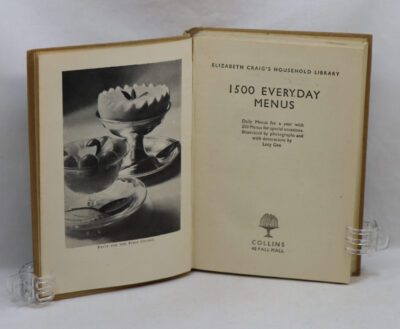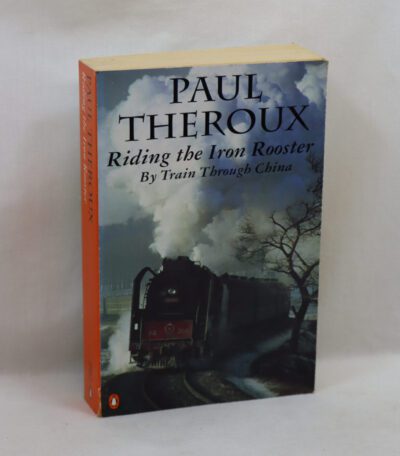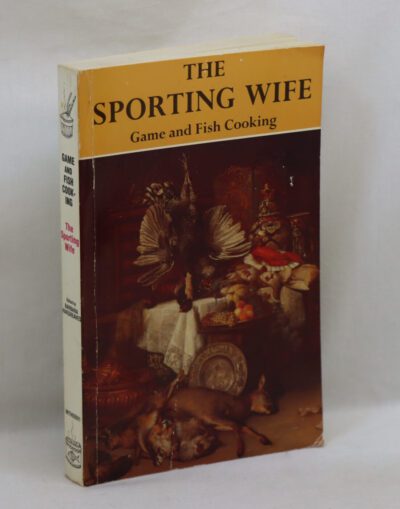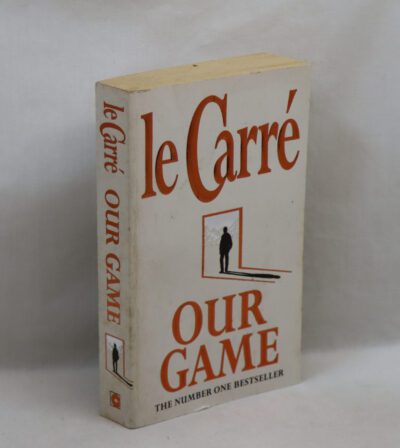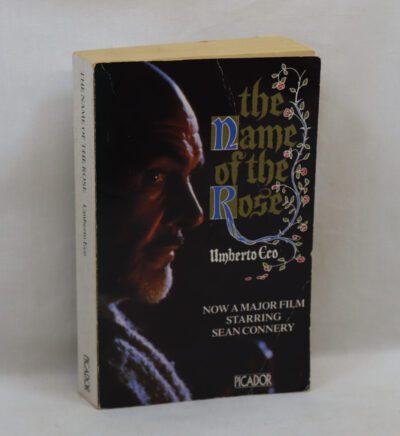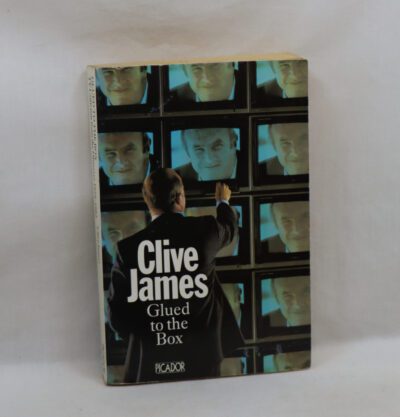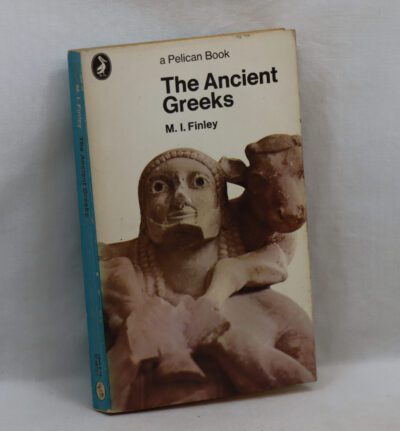Woody Allen.
By Eric Lax
ISBN: 9780804170840
Printed: 1991
Publisher: Jonathan Cape. London
| Dimensions | 17 × 24 × 3 cm |
|---|---|
| Language |
Language: English
Size (cminches): 17 x 24 x 3
Condition: Fine (See explanation of ratings)
Item information
Description
In the original dustsheet. Black cloth binding with gilt title on the spine.
-
F.B.A. provides an in-depth photographic presentation of this item to stimulate your feeling and touch. More traditional book descriptions are immediately available.
The first major biography and critical study of the great American film director, wit and humorist to appear since the extraordinary events in his private life made headline news in 1993. Woody Allen is one of the most significant cultural figures of our time. When Woody Allen revealed in 1993 that he was abandoning his long-time companion Mia Farrow to live with her adopted daughter Soon-Yi Previn, the furore that swept the world media seemed out of all proportion to the magnitude of the principal players. Yet the news coverage soon made clear that, to his generation, Woody Allen was an archetypal figure, a role model, a laureate of the lost who spoke for millions of the dispossessed, frustrated and the inept. Though thrown out of court, the charges of child abuse against Allen should have utterly discredited him. Yet he not only survived the scandal but flourished. His next two films, Bullets over Broadway and Mighty Aphrodite, both won Oscars.
Review – If sex, politics and religion are the big issues that divide people, Woody Allen can’t be far behind. He is loved by sophisticates and cab drivers alike–“he’s bald, he’s ugly, he can’t get laid–he’s just like us”. He is equally loathed by many who see his neurotic ticks and self- absorption as too smothering of his talent. Since Eric Lax’s authorised (ie: anodyne) biography came out in 1991, Allen’s life has generated huge controversy due to his relationship with Soon- Yi, the adopted daughter of his ex-partner, Mia Farrow.
John Baxter here presents a balanced account of this fraught time, and thankfully does not allow it to overwhelm the rest of the book. He proves particularly strong on his analyses of the films, tracing the development from What’s New, Pussycat? to the triumph of Manhattan, and onto the darkness of Deconstructing Harry. He considers the role of Ingmar Bergman and Frederico Fellini in informing his direction, and Bob Hope and Charlie Chaplin, among others, in moulding the screen persona; but from behind this “Woody” emerges a deeply contradictory man, rather unlovable and only passingly loving, who uses a megalomaniac paranoia to drive his creativity, but which denies him happiness, at least in a conventional sense. It is to John Baxter’s credit that he refrains from indulging in excessive psychoanalysis, and the result is an intelligently melancholic biography of an anhedonistic auteur. –David Vincent
John Baxter, film critic and author of highly acclaimed biographies of Fellini, Bunuel, Steven Spielberg and Stanley Kubrick, has written the first major biography and critical study of the great American film director, wit and humorist to appear since the extraordinary events in his private life made headline news in 1993.
When Woody Allen revealed that he was abandoning his long-time companion Mia Farrow to live with her adopted daughter Soon-Yi Previn, the furore that swept the world media seemed out of all proportion to the magnitude of the principle players. Yet, to this generation, Woody Allen was an archetypal figure, a role model, a laureate of the lost who spoke for millions of the dispossessed, frustrated and inept. Allen not only survived the scandal but flourished. His nest to films, ‘Bullets over Broadway’ and ‘Mighty Aphrodite’, both won Oscars.
John Baxter is a film critic, novelist, biographer and broadcaster, whose books on the cinema include ‘The Hollywood Exiles’, ‘The Cinema of John Ford’, and highly praised biographies of Ken Russell, Fellini, Bunuel, ‘Steven Spielberg’ and ‘Stanley Kubrick’. His biography of ‘Woody Allen’ was published by HarperCollins in November 1998.
Heywood Allen (born Allan Stewart Konigsberg; November 30, 1935) is an American filmmaker, actor, and comedian whose career spans more than six decades. Allen has received many accolades, including the most nominations for the Academy Award for Best Original Screenplay, with 16. He has won four Academy Awards, ten BAFTA Awards, two Golden Globe Awards and a Grammy Award, as well as nominations for an Emmy Award and a Tony Award. Allen was awarded an Honorary Golden Lion in 1995, the BAFTA Fellowship in 1997, an Honorary Palme d’Or in 2002, and the Golden Globe Cecil B. DeMille Award in 2014. Two of his films have been inducted into the National Film Registry by the Library of Congress.
Allen began his career writing material for television in the 1950s, alongside Mel Brooks, Carl Reiner, Larry Gelbart, and Neil Simon. He also published several books of short stories and wrote humor pieces for The New Yorker. In the early 1960s, he performed as a stand-up comedian in Greenwich Village, where he developed a monologue style (rather than traditional jokes) and the persona of an insecure, intellectual, fretful nebbish. During this time, he released three comedy albums, earning a Grammy Award for Best Comedy Album nomination for the self-titled Woody Allen (1964).
After writing, directing, and starring in a string of slapstick comedies, such as Take the Money and Run (1969), Bananas (1971), Sleeper (1973), and Love and Death (1975), he directed his most successful film, Annie Hall (1977), a romantic comedy featuring Allen and his frequent collaborator Diane Keaton. The film won four Academy Awards, for Best Picture, Best Director, Best Original Screenplay, and Best Actress for Keaton. Allen has directed many films set in New York City, including Manhattan (1979), Hannah and Her Sisters (1986), and Crimes and Misdemeanors (1989).
Allen continued to garner acclaim, making a film almost every year, and is often identified as part of the New Hollywood wave of auteur filmmakers whose work has been influenced by European art cinema. His films include Interiors (1978), Stardust Memories (1980), Zelig (1983), Broadway Danny Rose (1984), The Purple Rose of Cairo (1985), Radio Days (1987), Husbands and Wives (1992), Bullets Over Broadway (1994), Deconstructing Harry (1997), Match Point (2005), Vicky Cristina Barcelona (2008), Midnight in Paris (2011), and Blue Jasmine (2013).
In 1979, Allen began a professional and personal relationship with actress Mia Farrow. Over a decade-long period, they collaborated on 13 films and conceived a child, the journalist Ronan Farrow. The couple separated after Allen began a relationship in 1991 with Mia’s and Andre Previn’s adopted daughter Soon-Yi Previn. In 1992, Farrow publicly accused Allen of sexually abusing their adopted daughter, Dylan Farrow. The allegation gained substantial media attention, but Allen was never charged or prosecuted, and vehemently denied the allegation. Allen married Previn in 1997. They have adopted two children.
Want to know more about this item?

Related products
Share this Page with a friend



